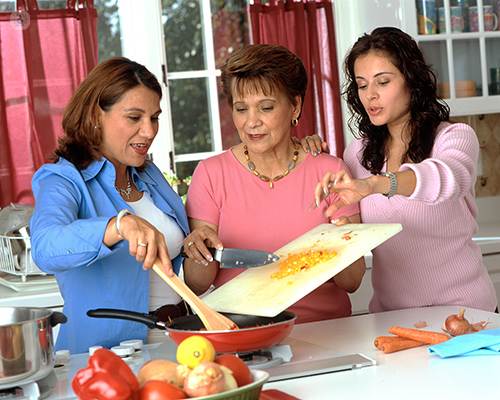Bone pain, breast tenderness, and migraine: signs that can indicate the menopause
Written by:In the months and years leading up to the menopause, some symptoms may start to display, giving indication change is on the way. Dr Taher Mahmud, leading consultant rheumatologist of the London Osteoporosis Clinic, talks about the menopause, and how it can affect our bones and joints.

The menopause and bone loss
As we get older, generally the level of bone we have in our bodies decreases – we usually reach our peak bone mass in our thirties, after which the bone resorption rate begins to overtake the rate our bodies produce new bone. In the perimenopause (the menopausal transition) women can lose up to 5% of bone per year, and over a 4-5 year period they can lose up to 20-25% of their bone mass.
Menopause and the joints
At the midlife stage, women may experience joint aches and pain, with a reported prevalence as high as 50 to 60 percent, according to cross-sectional studies. As women enter the menopause, they can experience inflammation in the joints, pain, and a loss in range of movement due to joint stiffness.
Joint pain is relatively common in women approaching the menopause. It can affect any joint in the body, and be limiting, as it can make day-to-day tasks more difficult or unpleasant to perform.
Other common associated menopausal symptoms
Breast pain
Breast pain and tenderness are common in the early menopausal transition, but begin to diminish in the late menopausal transition. This is probably due to the fluctuations in oestradiol (the primary female sex hormone) concentrations. Fluctuating hormones are thought to be the reason behind many conditions and symptoms relating to the menopause.
Menopausal migraine
Menstrual migraines are migraine headaches that cluster around the onset of each menstrual period. In many women, these headaches worsen in frequency and intensity during the menopausal transition.
Treatment and diagnosis of bone and joint problems
Nowadays, there are tests that can be done to check a woman’s vitamin D (and other nutrient) levels, bone strength, and if the joint pain they are experiencing is related to arthritis. Blood tests, for example, can be taken to diagnose arthritis. These tests are easily performed and can give indication of general bone and joint health.
There are various ways to deal with the treatment of bone conditions or arthritis/inflammation in the joints. Many start with lifestyle changes, including optimal nutrition and encouraging regular exercise. A lack of exercise accelerates bone loss, along with other factors such as drinking excess alcohol and smoking.
The course of treatment for each patient is different, but there are certain types of medication or drug available which can help to reduce the symptoms of arthritis or other inflammatory conditions.
If symptoms are troublesome, do not suffer in silence, and imagine they are normal. There are treatments and solutions available for both bone and joint pain. The earlier you seek help, the more chance you have of reducing or eradicating your symptoms.



